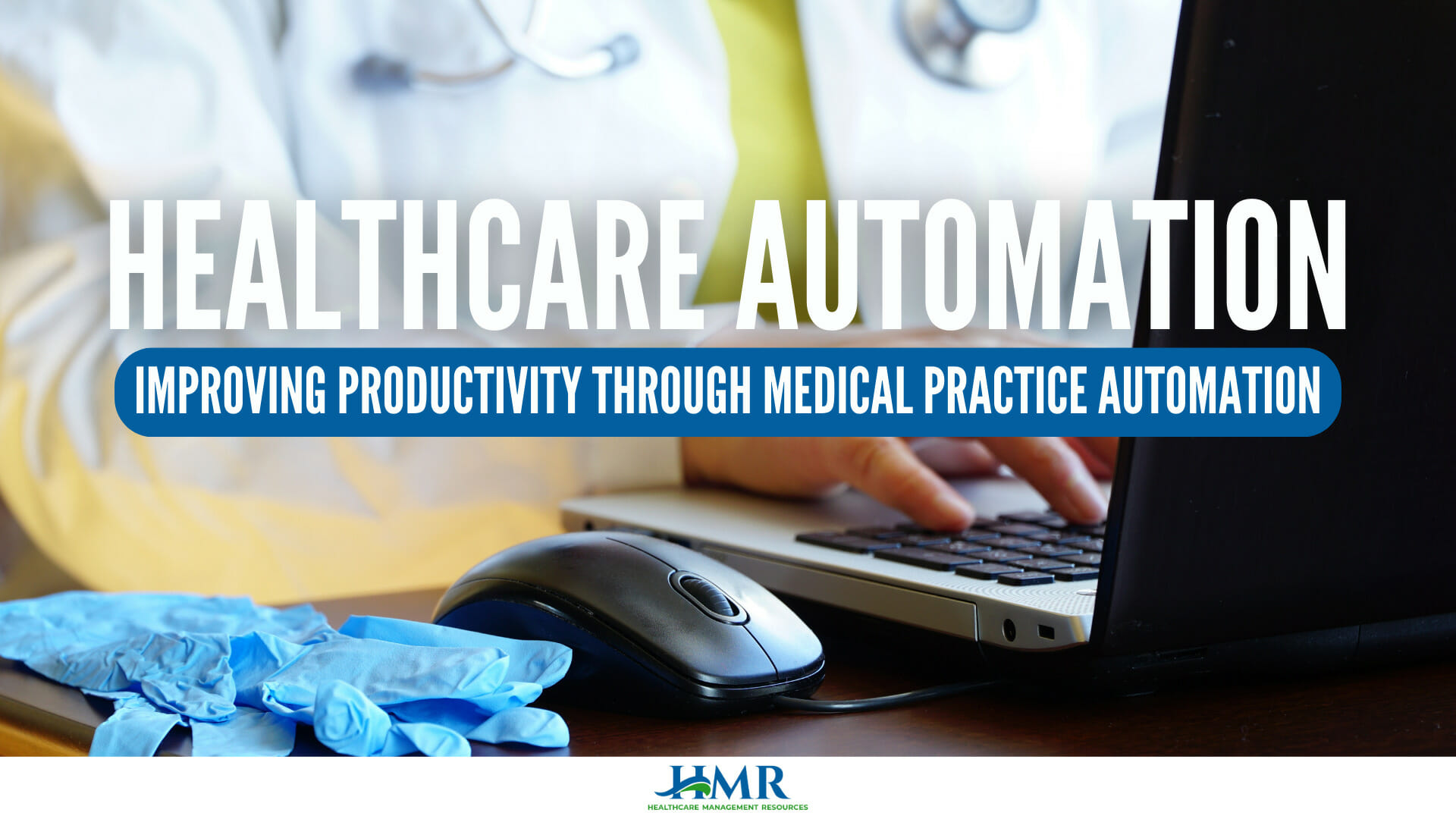Healthcare Automation: Improving Productivity through Medical Practice Automation

In the fast-paced world of healthcare, every second counts. Medical professionals are continually seeking ways to streamline their practices, enhance patient care, and improve productivity. Medical practice automation is a transformative approach that leverages cutting-edge tools and technologies to revolutionize the healthcare landscape. In this comprehensive blog post, we’ll explore the top tools to improve productivity through medical practice automation and how they’re reshaping the way healthcare is delivered.
1. Electronic Health Records (EHR) Systems
At the forefront of medical practice automation are Electronic Health Records (EHR) systems. These digital platforms are the backbone of modern healthcare, offering an integrated solution for storing and managing patient information. EHR systems enable healthcare providers to access patient records securely, record data efficiently, and exchange information seamlessly. Gone are the days of paper records, as EHR systems like Epic, Cerner, and Allscripts provide a comprehensive and centralized repository for patient data, promoting efficient and accurate patient care.
2. Practice Management Software
Managing the daily operations of a medical practice can be overwhelming. Practice management software simplifies the administrative tasks that often bog down healthcare providers. From appointment scheduling and billing to claims processing and patient communications, these tools streamline essential functions. Kareo, Practice Fusion, and Athenahealth are among the leading names in practice management software, helping healthcare professionals focus more on patient care and less on paperwork.
3. Telemedicine Platforms
The advent of telemedicine has reshaped the way patients access healthcare services. Telemedicine platforms such as Doxy.me, Zoom for Healthcare, and Teladoc have made remote consultations a reality. Healthcare providers can now reach patients virtually, reducing the need for in-person visits and saving both time and resources. Medical practice automation extends beyond the clinic walls, enhancing patient access and convenience.
4. Medical Billing and Revenue Cycle Management (RCM) Software
The financial health of a medical practice hinges on efficient billing and revenue cycle management. Medical billing and RCM software automate the billing process, manage claims, and optimize revenue cycles. Tools like Medisoft, AdvancedMD, and Kareo ensure that healthcare providers receive accurate and timely payments, reducing the complexities of revenue management.
5. Appointment Scheduling Tools
Appointment scheduling can be a logistical nightmare for medical practices. Enter online appointment scheduling software like Zocdoc, AppointmentPlus, and Acuity Scheduling. These tools empower patients to book appointments online, reducing phone call volume and administrative work. Medical practice automation extends to the patient experience, making it more convenient and accessible.
6. Medical Chatbots
In today’s digital age, AI-powered chatbots are becoming a staple in medical practice automation. Chatbots like HealthTap and Ada Health handle routine patient inquiries, appointment scheduling, and prescription refills. These virtual assistants improve patient engagement and free up healthcare staff for more critical tasks.
7. Voice Recognition Software
Voice recognition software, such as Dragon Medical Practice Edition, is a game-changer for medical professionals. It allows for efficient transcription of notes and records using voice commands, saving precious time on documentation.
8. Document Management Systems
Managing vast amounts of medical documents and records can be daunting. Document management systems like SharePoint and dedicated healthcare document management solutions provide a secure and organized way to store, retrieve, and share medical documents, ensuring compliance with data privacy regulations.
9. Patient Portal Software
Patient engagement is a cornerstone of quality healthcare, and patient portal software plays a crucial role. Platforms like MyChart and FollowMyHealth enable patients to access their medical records, schedule appointments, and communicate securely with healthcare providers, fostering active participation in their care.
10. Prescription Management Software
e-Prescribing systems simplify prescription management, enhance medication accuracy, and reduce paper-based processes. Surescripts and DrFirst are examples of tools that have transformed how prescriptions are managed, benefiting both patients and healthcare providers.
11. Healthcare Analytics Platforms
Data-driven decision-making is key to improving healthcare outcomes. Analytics tools like Tableau and QlikView empower healthcare organizations to extract insights from their data, optimize workflows, and enhance patient care.
12. Remote Monitoring Devices
The Internet of Things (IoT) and wearable devices can be seamlessly integrated with EHR systems to collect patient data remotely. Continuous monitoring of vital signs and other health parameters allows for timely interventions, improving patient care and outcomes.
13. Revenue Cycle Analytics
Understanding and optimizing revenue cycles are essential for the financial sustainability of medical practices. Tools like RevCycle+ provide insights into revenue cycle performance, helping healthcare organizations identify bottlenecks and maximize revenue collection.
14. Compliance and Security Solutions
Maintaining patient data security and complying with healthcare regulations like HIPAA are non-negotiables. Compliance and security software solutions ensure that medical practices uphold the highest standards of data protection.
15. AI and Machine Learning Tools
Artificial intelligence and machine learning are driving innovation in healthcare. These technologies are used for tasks like medical image analysis, predictive analytics, and patient risk assessment, enhancing clinical decision-making and patient care.
16. Workflow Automation Software
Tools like Zapier and Integromat can automate various tasks and integrate different healthcare systems and software, streamlining workflows and reducing manual labor.
17. Patient Engagement Platforms
Engaging patients through automated reminders, educational content, and surveys not only improves patient satisfaction but also contributes to better healthcare outcomes. Patient engagement platforms are a vital component of medical practice automation.
18. Inventory Management Systems
Managing medical supplies and medications efficiently is crucial for patient care. Inventory management software tailored for healthcare ensures that medical practices have the right supplies at the right time.
Conclusion
Medical practice automation, driven by a diverse array of tools and technologies, is revolutionizing healthcare by improving productivity, enhancing patient care, and simplifying administrative tasks. These tools empower healthcare professionals to focus on what matters most: providing quality care to their patients. The future of healthcare is automated, and with these tools, medical practices are well-equipped to meet the challenges and opportunities that lie ahead. Embrace medical practice automation, and watch your healthcare practice thrive in the digital age.
